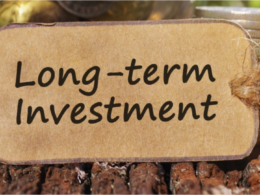Table of Contents
Investing directly in real estate used to need a lot of money. Real estate investment trusts (REITs) changed that by pooling funds from many investors. Now, crowdfunding is another option for everyday investors to get into real estate. We’ll help you compare your choices, explore alternatives, and answer your questions. Once you know how to start a crowdfunding account for real estate, you can pick investments that fit your goals and start investing.
What You Need to Open a Real Estate Crowdfunding Account
Opening a real estate crowdfunding account requires providing personal and financial details like setting up any online investment account.
Personal Information
Certain platforms let you sign up with only an email and password, but to open an investing account, you’ll typically need to provide basic personal details:
- Electronic mail (Email)
- Legal name
- Home or mailing address
- Contact number
- Date of birth
- You might need to provide a government-issued ID number for verification purposes.
Financial Information
Most platforms will directly ask if you’re an accredited investor or not. However, even platforms that accept non-accredited investors will still need the following details:
- Social Security number (or tax identification number for businesses)
- Your earnings and total assets for a Know Your Client (KYC) survey
Accredited investors might need to confirm their status by providing one or more of the following:
- Statements from your investment accounts
- Tax documents
- Verification from a financial expert, such as an accountant
- Evidence of a financial license
- A signed statement
How to Open a Real Estate Crowdfunding Account
Setting up a real estate crowdfunding account is pretty simple. However, you must pause and consider your options before choosing the first platform you find in your search.
Understand the Real Estate Crowdfunding Market
Real estate is a good option for investors looking for alternative assets, but it’s crucial to understand your financial situation and how much risk you’re comfortable with before getting started. Accreditation is a big deal in real estate crowdfunding. Accredited investors have more choices when investing directly in real estate. Non-accredited investors might have fewer options or be limited to certain investments like REITs and funds.
If you’ve made over $200,000 per year in the last two years ($300,000 for couples) or have a net worth of $1 million without counting your main home, you’re considered an accredited investor. You can also become accredited through knowledge and experience, like obtaining a Series 7, Series 65, or Series 82 license.
Assessing your comfort with risk is a bit tricky. Many real estate crowdfunding websites boast high potential returns in the double digits, but the downside is that investments can also fail. Even loans can go bad, putting the investor’s initial money and expected returns at risk. While real estate investments offer diversity from stocks, they’re still affected by economic ups and downs. Like any risky investment, it’s better to use extra money rather than rely heavily on it for your financial portfolio.
Research the Different Platforms
It’s crucial to thoroughly research a crowdfunding platform before investing, especially since this industry is still new and many companies haven’t experienced economic downturns. Some platforms are only available to accredited investors or have high minimum investment requirements, making them hard for non-accredited investors to access. Additionally, some platforms charge fees to the sponsor or investors, so understanding how the company generates revenue is important. Beyond affordability, it’s essential to understand the platform’s due diligence process, what it evaluates, and how it safeguards investors when listing an investment opportunity.
Create an Account
Account setup differs depending on the platform. Some platforms only need your email and a password to let you view investments. You can complete the setup and fund your account when you find something you like. Other platforms have a longer onboarding process. This might involve verifying your accreditation status and linking a bank account before you can access the platform.
Fund the Account
Procedures can differ among platforms, but most will let you transfer money from a linked bank account, similar to regular brokerage accounts. Sometimes, you might need to use a different method for large sums, like a wire transfer directly to the sponsor or a business entity like an LLC.
Start Investing
Once your account is funded, you can begin investing, but it’s crucial to do your research in addition to the platform’s due diligence. If you’re unfamiliar with important metrics like loan-to-value ratio or free cash flow, learn about them before investing. Double-check the platform’s research with other sources, and consider contacting real estate experts in that area for a second opinion.
Choosing a Real Estate Crowdfunding Platform
- Eligibility criteria: Several platforms are only for accredited investors, and those that accept non-accredited investors often restrict investments to funds and REITs. Your residency status is also important, as many real estate crowdfunding platforms are only available to U.S. residents and U.S.-based entities.
- Minimum investments vary greatly among platforms, ranging from $10 to $200,000. You’ll need to check for enough money to use a specific platform. Some platforms also have investment limits, preventing you from investing more than a certain percentage of your net worth.
- Fees and penalties: Real estate crowdfunding fees can be hard to understand. Some platforms make sponsors pay all the fees, while others charge fees for using the platform or managing funds. Ensure to check for fees and understand the rules about early withdrawals or exits, as there may be penalties.
- Transparency: Understanding how a platform evaluates sponsor deals and helps investors if there’s a problem is important. Does the platform explain how deals are set up? Is there a plan for unexpected situations like needing more money for a project? If you can’t find this info easily, it’s probably not a good sign.
- Investment choices: Accredited investors have more options than non-accredited ones. Non-accredited investors usually only have access to private REITs or funds on the platform. Accredited investors typically have a wider range of options, including commercial real estate and multi-family units. Some platforms offer more choices, like industrial real estate, marine investments, or storage.
Compare the Best Real Estate Crowdfunding Platforms
| Company | Fees | Minimum Investment | Accredited Investors Only? | Investment Selection |
|---|---|---|---|---|
| Fundraise | 0.15% and 1.85% | $10 (brokerage) or $1,000 (IRA) | No | Equity, debt, and funds |
| EquityMultiple | 0.50%-1.5% + origination fee | $20,000 | Yes | Equity, debt, and funds |
| YieldStreet | 0.00%-2.00% | $10,000 | No | Equity, debt, and funds |
| Arrived Homes | Long-Term Rentals: 3.5% Sourcing Fee, 0.15% AUM. Vacation rentals: 5% Sourcing fee, 5% Gross rent fee, property management fees (third-party party-pass-through fees): vary | $100 | No | Equity, fund |
| RealtyMogul | Vary per deal; Income REIT caps fees at 4.5%, Apartment Growth REIT caps fees at 4.75% | Varies per project, from $5,000 and up | No | Equity, debt, and funds |
| CrowdStreet | Vary per investment and are paid to the sponsor | Typically $25,000, but varies per investment | Yes | Debt, equity, funds |
| DPL Capital | 2% (fee rebates for investments greater than $1 million) | $200,000 | Yes | Debt, equity, funds |
Alternatives to Real Estate Crowdfunding
Investing directly in real estate through private equity deals is an alternative investment. These are usually less liquid and riskier than publicly traded options. Crowdfunded real estate isn’t the only alternative investment, though. Here are a few other options that provide similar diversification from the regular market.
Fine Art and Collectibles
Items like fine art, antiques, wine, and other rare and popular physical objects are known as collectibles. To invest in collectibles, you must know about the market for different items and be able to judge their quality and authenticity. Collectors also need to think about safe storage and insurance for their investments.
Cryptocurrency
Cryptocurrency is a virtual currency that doesn’t rely on a government for its value. It uses blockchain technology and is traded on cryptocurrency exchanges. While it’s becoming more accepted as an asset class, it’s still considered risky and speculative, similar to real estate crowdfunding. You can invest in cryptocurrency directly through exchanges or take a more diversified approach by investing in exchange-traded funds (ETFs).
Precious Metals
Precious metals such as gold, silver, and platinum are alternative investments. Gold and silver can be collected as coins or jewelry, often selling for more than their melt value. Other physical forms, like bullion bars, are traded closer to the current market price of gold and silver as commodities. Investors can also invest in precious metals through ETFs, futures, options, and shares of mining companies.
Peer-to-Peer Lending
Peer-to-peer (P2P) lending is similar to real estate crowdfunding because it’s a private way of getting financing outside of traditional bank loans. On P2P lending platforms, investors can lend money to individuals who might not qualify for regular bank loans. Because there’s more risk, the interest rates on these loans might be higher. Prosper and Lending Club, as are real estate crowdfunding platforms, are important for creating this lending market. While Lending Club has shifted to institutional investing, there’s no replacement for its investment option. The requirements for P2P lending vary by state, but they’re usually not as strict as those for accredited investors regarding income and net worth.
1. How Does Real Estate Crowdfunding Work?
Ans: Investors join to buy shares in private real estate projects or operations. In return for their investment, the project sponsor will pay investors from rental income and profits when the property is sold or through regular interest payments for debt investments. Platforms that list these opportunities are crucial in checking the investment and setting it up.
2. Is Real Estate Crowdfunding Worth It?
Ans: Real estate crowdfunding offers the potential for higher returns but comes with higher risks. While it’s less affected by financial markets, it’s still influenced by the economy where the properties are. It can give investors better-than-average returns and help diversify their portfolios. Still, it’s important to use money you can afford to risk rather than making it the main part of your investment portfolio.
3. What Are the Disadvantages of Real Estate Crowdfunding?
Ans: Investing in real estate crowdfunding is risky because it’s a private investment. If the investment fails, you could lose all your money and face issues like lack of liquidity, fraud, or platform failure. Private projects don’t have the same level of regulation as other investments, so it’s harder to do thorough research. Also, economic factors like rising interest rates or construction costs can unexpectedly increase project expenses, leading to additional costs for investors or a reduction in their ownership stake.
4. Can You Invest in Real Estate Crowdfunding With a 401(k)?
Ans: Most traditional 401(k) plans banks or brokerages offer don’t allow you to invest in real estate crowdfunding. To invest retirement funds in this type of asset, you’ll need a self-directed 401(k). While this is an option, it’s best to use the money you can afford to risk. Putting all your retirement savings into real estate crowdfunding isn’t a wise investment strategy.
Buy, trade, and hold 350+ Currencies.
Join millions of users trading popular cryptocurrencies on Binance. Buy and sell Bitcoin, Ethereum, BNB, and Binance’s coin. Whether you’re new to trading or a crypto expert, our platform offers low fees and helpful tools. Easily and securely trade NFTs with our app.










